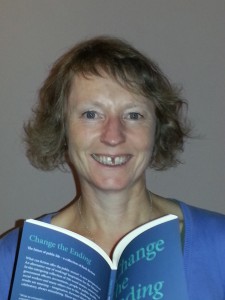In the last 5 months I’ve been involved in curating and publishing Change the Ending – a fantastic collection of flash fiction about the future of public life. It’s been the highlight of the year for me and has taught me some useful lessons about creativity, encouraging others to be creative and it’s re-enforced my belief that creativity can inspire change.
In June I put out an open call to anyone who cared about public services and local government to take an imaginative leap and describe a future they wanted to see in 350 words. Bravely, many first time writers, people who worked in the sector (and a handful of more experienced writers who also felt passionately about it) clambered up onto a platform that I created in the middle of the stormy waters of life in public services and told their stories.
The book wouldn’t have existed without these people being prepared to expose themselves to a possible battering of the waves, and at the same time, being open to the possibility that it might be like surfing, exhilarating and refreshing. I know surfing also involves falling off a few times, shivering and swallowing salt water, but you get to walk back onto the beach head held high, as someone who had a go, who put themselves out there.
I don’t know exactly if that’s how all the writers felt, but it was how I felt with my first novel, it’s everyday life for writers – and interestingly pretty similar for people working in public life. I re-assured our writers that the ups and downs, the fear and doubt are normal in any creative process; in fact those uncomfortable feelings are useful. It’s an idea that takes some getting used to – and to be honest I’m still working on it.
At the heart of this, it’s the fear of being judged negatively that can stop us from having a go or picking up the pen. I know there were some people who wanted to write a story for the collection but in the end didn’t make it because of that reason.
We live in a horribly judgemental society, as if everything is black and white – completely bad or absolutely brilliant, where other people make up the criteria. For me the anxiety of not knowing if it’s any good, or fearing that I’ll be judged, reminds me that I’m doing something different. If I knew how things would turn out (as if you can ever know) it would be too safe, and probably not that interesting.
As the surfers might say – “feel the fear and do it anyway.” Except that we all know escaping the tyranny of evaluation isn’t easy, so it was important for Shared Press to make Change the Ending as safe and enjoyable a process as possible. We offset some of the fears that people have of making their ideas public by making it a collaborative process.
I was also really clear about the benefits of contributing to the project for the writers. I wanted to provide people with the experience of being creative because I believe that makes you feel differently about your situation and it opens up possibilities. Paddling back to the surfing metaphor, I think the process of thinking and writing creatively, like surfing, makes you see the sea you’re swimming in differently. And at any second things could change. One wave, one move, one word or thought can lead to another and take you somewhere new. This is the exciting bit and it’s important; having an experience that forces us into the unknown helps us to learn, without it, we’re stuck in the same old – same old stories about ourselves and our world.
Plus its motivating! Another benefit, I’m not a surfer but… I know that like writing, it can be addictive. By the way – that’s honestly the last reference to surfing, I’ve never been and I’m actually imagining all of this. Curating this book, hearing the stories, getting to know and talk to the writers has made me mad keen to get back out there, to hear and create more stories about public life, create new platforms, share the new endings imagined in this book.
A new story for Change the Ending. In that spirit, we received more stories than we had space for in the book and are delighted to be able to share more of them with you. We hope you enjoy the read and spread the word.
I remember when all this was fields…
Pippa Corner
“I remember when all this was typists.”
The mayor shrugged. Sunlight glinting from the heavy, unfamiliar chain of office broke her father’s reverie. He was proud: her magnificent victory speech, her great plans, this tour of the Town Hall. He gestured towards swathes of empty desks.
“In here, way back, all typists. Row upon row. Minutes, letters, memoranda. All in triplicate. Carbon paper. I remember the smell.”
She tutted. Exasperated.
* * *
“Locality Eight joins conference,” crackled the automated voice. A final square of the plasma screen flooded with colour. A flash of cleavage heralded Chardonnay’s arrival, as she reached across the keyboard for her coffee.
“Hi!” everyone chimed.
“Item one: quality assurance. Hologram Harry: faulty. Apparent protocol breach involving commode robot – client 259036.”
“Not funny!”
“Monitor for five days under Simon Peter protocol?”
“No. Immediate visit. Human contact.”
“What?”
“Three fails?”
“Chardonnay, go today. Take your intern. And some biscuits.”
“Why?”
“New standing order – stitch in time protocol.”
“Meaning?”
“Do the right thing. It’s an over-riding manifesto pledge.”
Brooklyn scrolled up to click Participate. “But how do we know what’s right?”
Manager Ashley’s heart pounded. She took a long, hard drag on her inhaler for dramatic effect.
“Whyever did you join Social Care, Brooklyn?” she sighed.
* * *
Chardonnay wafted her smartcard at the bungalow door. It opened slowly with an electronic announcement: “Chardonnay Rivera, Locality Manager Eight, People Division, entering your home.”
The place was spotless. She snatched some images for the file.
“Hello love.” A hoarse greeting croaked from the living room. “I only called this morning.”
“Well, a stitch in time…”
“Saves nine!” he brightened.
“So, your hologram‘s playing up?”
“I’m not complaining, but he’s a bit offhand. He says he’s no time. And he’s got backache. How can a hologram get backache?”
“They rolled out this authenticity model last year. It starts well, but loses motivation.”
Mr Ormerod watched Chardonnay’s fingertips delicately dapple the console.
“Sorted! I’ve reset your preferences. Anything else I can do?”
“Stay for a cuppa?”
“Oh,” murmured the intern. “Biscuits.”
Pippa Corner is Head of Partnerships and Personalisation in the Adults, Health and Social Care Directorate of Calderdale Council

